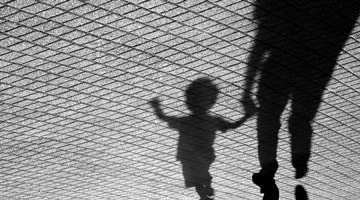Who were your role models growing up? Stop and think for a moment about what individual or individuals had the greatest impact on you. Was it your parents? A grandparent? A teacher? How did each contribute to who you have become? Was it something they told you that influenced you so much or was it something they did? Who they were as people, that left an impression on you?
Answering these questions makes us take a better look at ourselves. There is a school of psychology that refers to those who influence us, as social models; this movement makes us more conscious of the fact that we are role models for children. It’s not always about what we say but about what we do. As one of the leading figures in this school has said: “One can get people to behave altruistically, to volunteer their services, to delay or seek gratification, to show affection, to behave punitively, to prefer certain foods or apparel, to converse on particular topics, to be inquisitive or passive, to think innovatively or conventionally, and to engage in almost any course or action by having such conduct exemplified.” (A. Bandura. Social Foundations of Thought and Action. Englewood Cliffs: Prentice Hall, 1986.)
In short, we can get our kids to do almost anything just by being role models.
This process works in religious education as well. In the same way that we can influence our kids about the way we lose our temper or the way we spend our leisure time or the way we show affection, so too, we can influence them about the kind of spiritual people we are. This takes place when kids come into contact with what are called “spiritual exemplars” people whom they then seek to imitate. The stories we tell about the Avot or Moshe or Rabbi Akiva, or Rav Soloveitchik or Nechama Leibowitz, all serve as religious exemplars. But spiritual exemplars can also exist in kids’ personal lives—first and foremost in the guise of their parents, although it can also be a grandparent or uncle or aunt or the like.
Now go back and think again about who were your spiritual role models when you were growing up? Who influenced you to believe that religion was worth practicing? Who lived their lives in such a way that their very existence made you think that there might be a God after all? Who do you think of when you think warm thoughts about shul-going or celebrating the holy days? What mitzvah can you think of that you hold especially dear, that you feel compelled to do because of the associations it conjures up within you? Whom do you recall with fondness when you think of an aspect of Shabbat? These people influenced you not because of what they taught you from a printed book but because they were the book! They were the spiritual exemplars in your life.
Think about your kids. Who are their spiritual exemplars?
I would love to hear about your own spiritual exemplars and to possibly share it with others so that we can learn from one another. Please write to soulofparenting@gmail.com and include your name, although if you would prefer that it be kept private or anonymous, please indicate that.
Rabbi Dr. Jay Goldmintz has been a day school educator and administrator for more than thirty five years who currently teaches full time at Ma’ayanot Yeshiva High School. He is Educational Director of the Legacy 613 Foundation, runs tefillah education workshops for teachers and has served as an adjunct at Azrieli Graduate School. He is author of the Koren Ani Tefila Siddur series, winner of the 2014 National Jewish Book Award.
The words of this author reflect his/her own opinions and do not necessarily represent the official position of the Orthodox Union.

